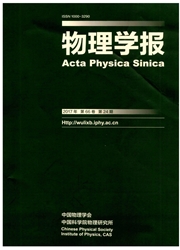

 中文摘要:
中文摘要:
对某国产0.5μm CMOS(Complementary Metal Oxide Semiconductor,互补金属氧化物半导体)N阱工艺CMOS有源像素传感器的电离总剂量效应进行了研究,通过^60Co-γ射线辐照试验,着重分析了对辐射最敏感的暗信号和暗信号非均匀性随总剂量退化的物理机理.实验发现,随着辐照剂量的增加,暗信号和暗信号非均匀性显著退化,并且静态偏置条件下器件的辐射损伤最大.暗信号退化的主要原因是光电二极管pn结和复位晶体管源端N+/Psub结表面边界周围的SiO2产生了大量的界面态;暗信号非均匀性显著退化是由于光电二极管的暗信号增大引起.上述工作可为深入研究CMOS有源像素传感器的抗辐射加固及其辐射损伤评估提供参考.
 英文摘要:
英文摘要:
A study of ionizing radiation efiects is presented for CMOS active pixel sensors manufactured in a 0.5-μm CMOS(complementary metal oxide semiconductor)by n-well technology. The basic mechanisms that may cause failure are also presented. After exposure in γ-rays, the most sensitive parts to radiation–dark signals and dark signal non-uniformity are discussed, i.e. the physical mechanism of the degradation by irradiation. One can see from the experiment that the mean dark signals are dramatically increased with total dose for both operated and static devices. Static device seems more afiected by irradiation than operated device. We find that most part of the total dark signal in a pixel comes from the depletion of the photodiode edge at the surface and the rest part is caused by the leakage of the source region of the reset transistor. Dark signal non-uniformity follows the dark current evolution with total dose. Further study of photodiode and LOCOS(local oxidation of silicon) isolation behaviors under irradiation should be done so as to correctly use this qualification techniques on MOS sensors manufactured in CMOS n-well technology process.
 同期刊论文项目
同期刊论文项目
 同项目期刊论文
同项目期刊论文
 期刊信息
期刊信息
